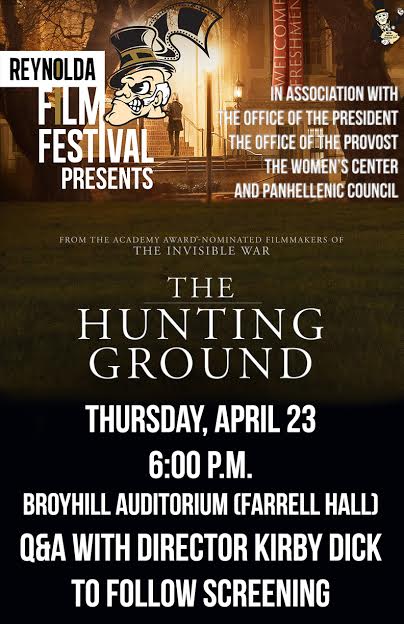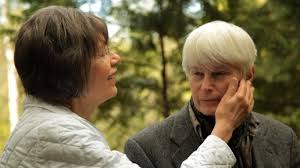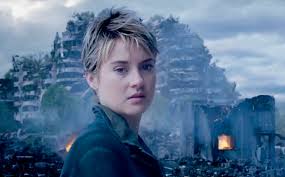When I saw the line-up for RiverRun’s Spotlight on Black American Cinema from 1971-1991, I was thrilled to see many culturally and historically significant films on the program. As I urge you to see all of these fine films, I’ve decided to interview RiverRun’s Program Manager Mary Dossinger and Program Coordinator Christopher Holmes to help me make my case!
Mary Dalton: Daughters of the Dust, in particular is a favorite of mine. I’ve written about it for Creative Screenwriting and have taught this film many times over the years in my own classes. In fact, my Media Theory and Criticism students will discuss it tomorrow morning. Of the many extraordinary things about Daughters of the Dust, what moves you the most about Julie Dash’s lyrical, 1991 masterpiece?
Mary Dossinger: I would say that for me the thing that moved me the most was the amazing way in which Julie Dash made you feel like you were a part of this culture through the gorgeous cinematography, the interesting aesthetic choices, natural sound and music and, most of all, the use of the traditional Gullah language (they had a dialect coach teach all the actors so that it was more authentic) without any subtitles. That way the audience is made to interpret what is being said at times. I found it to be such a transformative film in that regard. Audiences are transported to a world rarely seen or heard of by outsiders, and Dash did everything possible to make it as realistic as possible. Honestly, the fact that Dash was able to make this film at all is pretty amazing. Then, to be the first African American female director to receive a nationwide release with this film is so interesting considering this film is so far off from the mainstream Hollywood film, but thanks to her undeniably creative and wonderfully historic storytelling, the film was a hugely critical success and will be a wonderful treat for our audiences to be able to see it on the big screen and with a restored 35mm print no less!
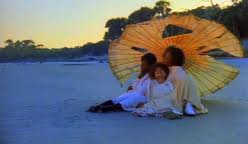
Mary Dalton: Charles Burnett’s 1977 film Killer of Sheep has been seen as a much needed counterpoint to Blaxploitation films that dominated depictions of Black life in the 1970s, but for years it was not widely seen except at a few film festivals. Though not widely seen, it was not unappreciated and was among the first 50 films entered into the National Film Registry in 1990, which makes it a national treasure. Still, the film is not always easy for viewers who see it for the first time without some context. What do you think will help first-time viewers better appreciate this film?
Christopher Holmes: I don’t think there’s anything disengaging or alien about Burnett’s approach with the film—perhaps what it struggles from the most is just being such a distinct departure from the types of films being made during the era, by black directors or otherwise. It was a bit ahead of its time, even, particularly if viewed within the context of the minimalism and neorealism we see in the early films of directors from the 1980s film school generation. Films we’re much more familiar with, like Jim Jarmusch’s Stranger Than Paradise and Spike Lee’s She’s Gotta Have It, for instance, are direct descendents of Killer of Sheep, which itself is a sort of distant cousin of the Italian neorealist films that Rossellini, Visconti, De Sica and others were making in the 1940s. It’s as much intended to be a document of a place (the impoverished Watts neighborhood of Los Angeles) at a specific moment in time as it was meant to be engaged with as a typical, narrative-driven filmgoing experience. Not to mention director Charles Burnett will be in attendance for our screening, which is the greatest gift a festival can offer when it comes to better appreciating the film!
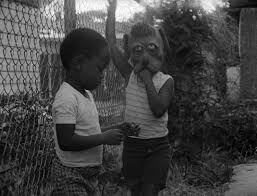
Mary Dalton: Agreed! That is a gift, indeed! Hollywood Shuffle is another type of corrective to stereotypical depictions of Black character. Robert Townsend uses satire as a mighty weapon to critique the commercial Hollywood machine in this 1987 film that is still painfully funny. Why did you include Hollywood Shuffle in the spotlight?
Mary Dossinger: Honestly I think you answered that within your question. Not only is Townsend’s film still very, very funny but the critique is still very relevant, unfortunately. The film is about a young black actor trying to make it in Hollywood in the 80s but he keeps only be offered roles for a slave, butler or gang member, despite trying his best to break out of these stereotypical roles. In re-watching this film it struck me how much this is still an issue today. Just last year there was a lot of discussion around the very popular film 12 Years A Slave and then the year before that with the Oscar-nominated The Help. This film was made almost 20 years ago now and Townsend’s very biting satire about both African-Americans lacking choice of roles and also the absurdity of the films being made in Hollywood in general, still hits right on the mark. It is a hysterical film but at the same time gets right to the heart of the matter just as much as the more dramatic films we have in this series. I definitely think it is an important film for people to see if they haven’t yet or even to revisit if they saw it back in 1987. Also, as a bonus, the director Robert Townsend is going to be coming to the Festival and will be doing a Q&A after the screening of this film as well as an additional panel with Charles Burnett, the director of Killer of Sheep, on Monday, April 20th at 6:00pm at the Milton Rhodes Center for the Arts.
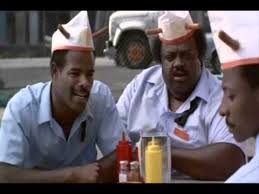
Mary Dalton: I saw She’s Gotta Have It back when Spike Lee was Spike Who? It’s still one of my favorites of his films, and he’s still one of my favorite directors. Of his other lesser known films, I still have a soft spot for Get on the Bus, and Do the Right Thing is still on the curriculum in my Media Theory and Criticism class (we talked about it in class yesterday!). What should viewers look for in this early film from Lee?
Mary Dossinger: One of the main reasons we chose this film over other Spike Lee films is because it was the film that really put him on the map, critically and publicly, in that it won an award at the prestigious Cannes Film Festival in 1986 and got a theatrical release from Island Pictures later that year. He is easily the most well-known director we are highlighting in this six-film retrospective, and so, we didn’t want to choose his more well-known films because many people already know those films you mentioned quite well. As you said, they are often taught in classes thanks to Lee’s incredibly insightful way of examining race and culture. What interested me most about this film in particular is that, while his usual look at race and class are very present, the film is mostly about gender politics, which is so refreshing. It is an unapologetically sexy and, at times, shocking film about a woman taking full control of her sexuality and sex life, despite the constant push back she experiences from both the men and women in her life. Lee’s envelope pushing is very present in the film, as is the use of comedy, driving home the point that women have every right to act just like men when it comes to love and sex. For those Spike Lee fans who haven’t seen this film, and for any of those who have never seen it, it is definitely a must! It is also a gorgeous film, shot in black and white and is going to look fantastic on 35mm.
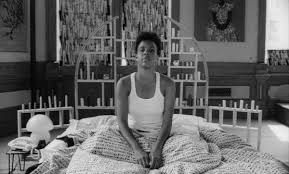
Mary Dalton: I confess that I’ve not seen Gordon Parks’s 1971 Blaxploitation classic Shaft recently, though the “Theme From Shaft” is racing through my brain as I ask the question! When viewers cut through the cheesiness, what do you want them to see?
Christopher Holmes: If viewers can distance themselves from the “blaxploitation” moniker, which is a bit of a misnomer anyways since the term only came into existence after producers attempted to replicate the box office successes of this film and Melvin van Peebles’ Sweet Sweetback’s Baadasssss Song (both released in 1971), they’ll see a tightly constructed, action-packed riff on the hard-boiled detective genre, transposed onto the gritty streets of Harlem. Richard Roundtree is as cool as they come in the lead role, and the film builds to a tremendously entertaining crescendo with a sort of inner-city sting operation, orchestrated to the legendary groove of Isaac Hayes’ score. It’s also worth noting that Hayes’ iconic theme song made him the first black man to earn an Academy Award in any category other than acting when he won for Best Original Song.
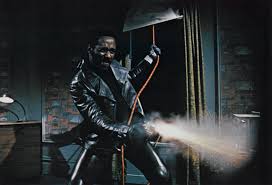
Mary Dalton: Boyz n the Hood is a classic, but I’ve always been more drawn to Menace II Society, seeing the latter as more complex and emblematic of the postmodern age. Why did you choose Boyz n the Hood — aside from the passionate speech Furious Styles (Lawrence Fishburne) gives on self-reliance?
Mary Dossinger: Well, this was the film that I was most passionate about because I remember vividly how emotional I felt after seeing this film back in the early 90s. It really made an impression on me as a young teenager, and I definitely wanted it to be included in this Spotlight section. The main reason it is included, however, is because it was the first time an African-American was nominated for best Director at the Academy Awards. This is worth celebrating not only because it was the first time this happened, and it was Singleton’s directorial debut no less, but it didn’t happen again until 2009 with Lee Daniels’ Precious, almost 18 years later! The film received massive critical success and garnered over $57 million at the U.S. box office, bringing to light the major issues of violence and drugs running rampant in poor, urban areas around the U.S. In re-watching this film recently, I was struck by how poignant this film still is and, sadly, still timely (as seems to be the case with many of the films in this Spotlight section). Since you mentioned it, Furious’ speech is still so heart-wrenching and the reactions by the group he is talking to, even more so. We have a number of documentaries in the Festival this year that speak to the unbelievable disparity between rich and poor in the country and even more so about the inherent racism in society and, even worse, from law enforcement themselves. This film starkly highlighted these issues over 20 years and that combined with some of the most amazing performances from well-known actors in some of their first roles (Cuba Gooding, Jr., Ice Cube, Morris Chestnut, Nia Long, etc…) made for such an significant film that we felt it needed to be included. While I know this film is readily available online I am hoping that audiences both new to the film and those revisiting it will still come out to see this film presented on the big screen at UNCSA! I don’t think they will regret it!
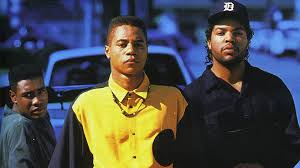
Mary Dalton: Thanks so much Mary and Christopher! It’s a great line-up enhanced by having so many of the directors on-hand to talk about their work!

